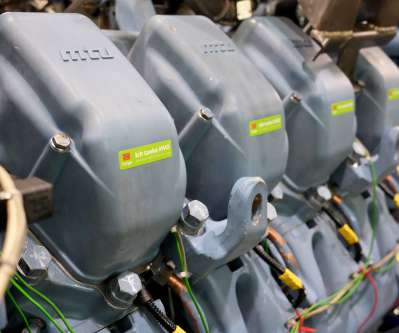Volkswagen Group continues switch to low-emission logistics with order for four more LNG ships
Green Car Congress
JULY 15, 2021
Volkswagen is the first automaker to transport most of its new vehicles overseas using low-emission LNG ships. Models of the new LNG ships for the Volkswagen Group’s ocean-going fleet. The company follows the principle of focusing first on the avoidance of CO 2 emissions and then on reducing emissions as far as possible.













Let's personalize your content